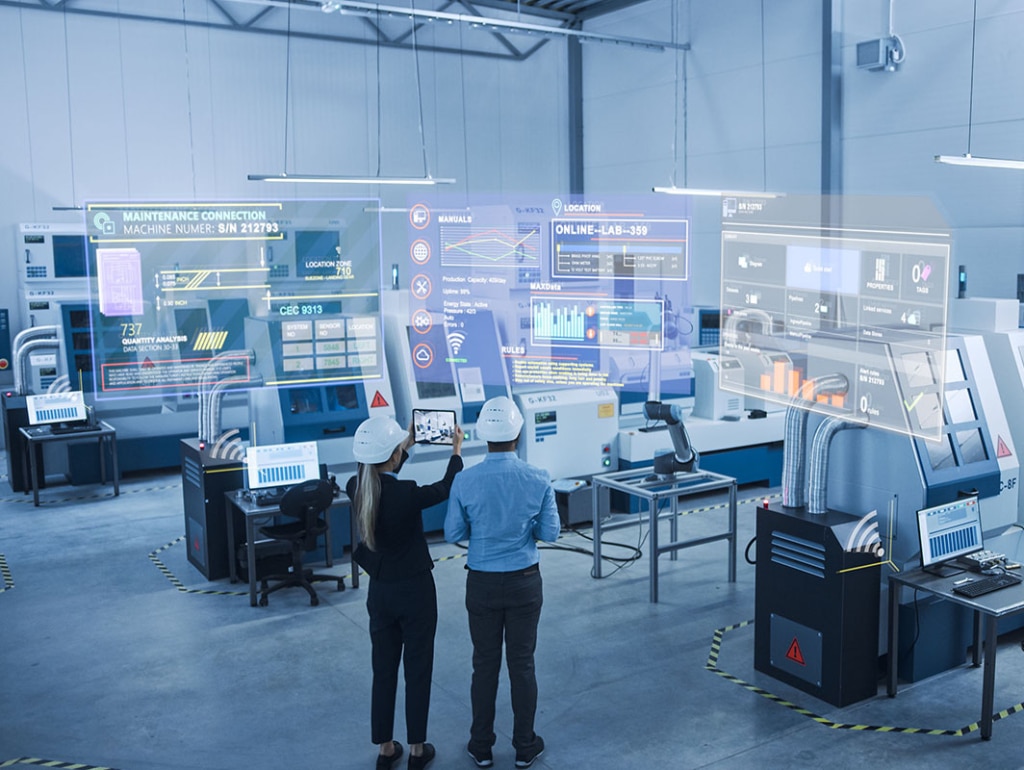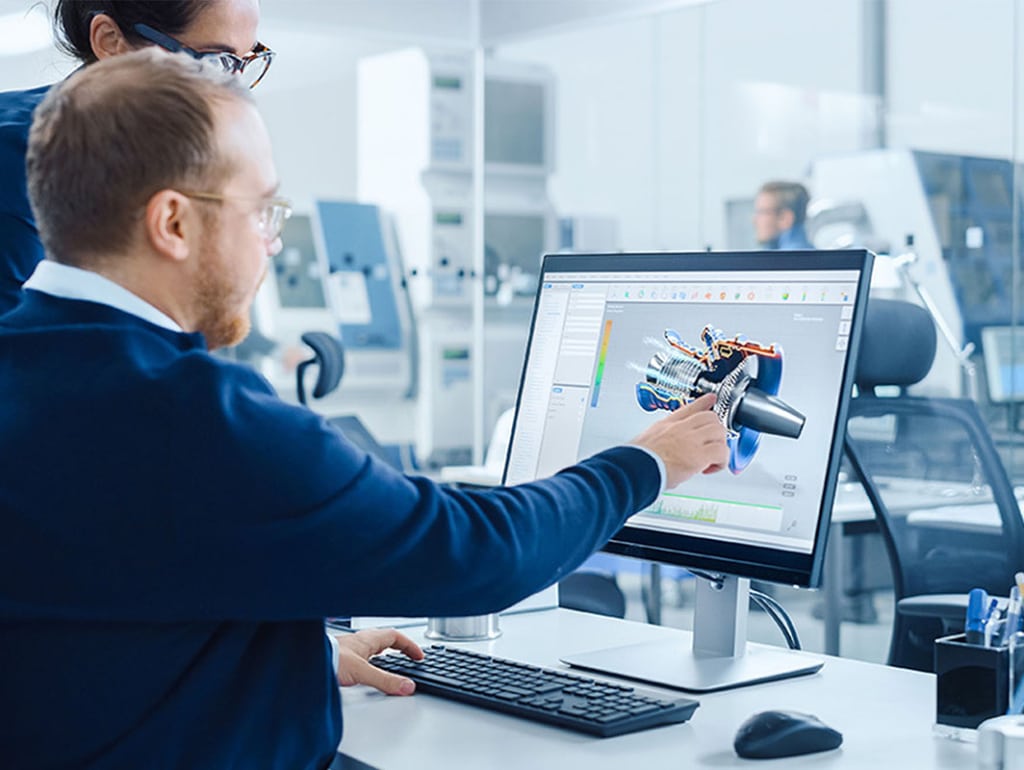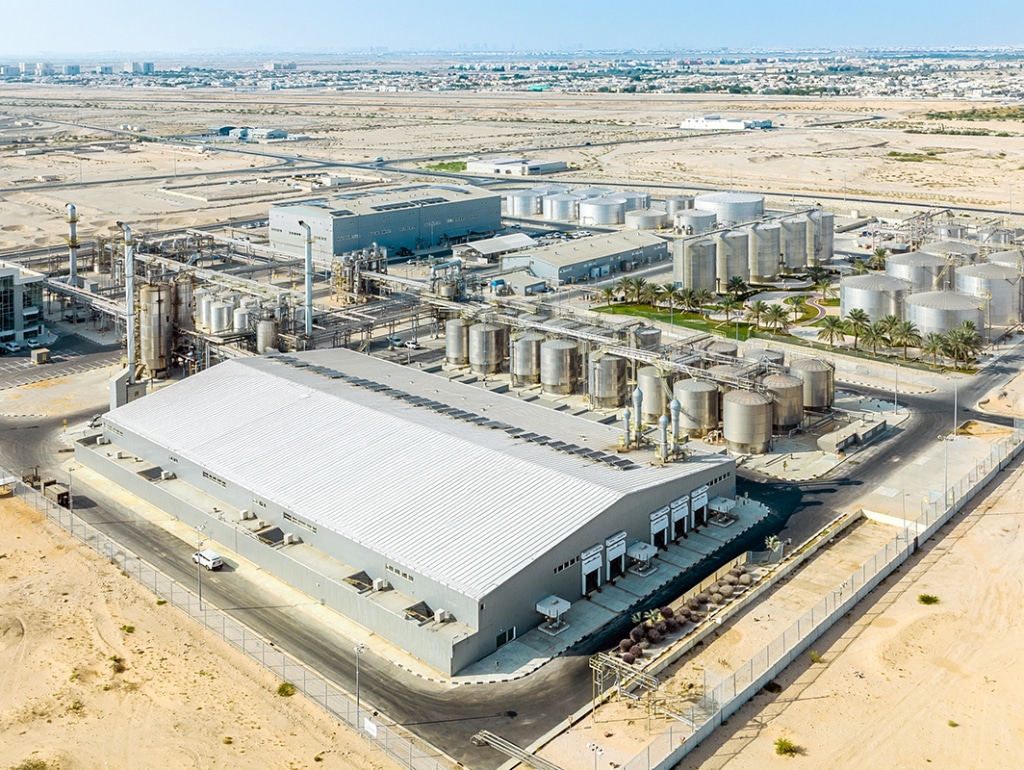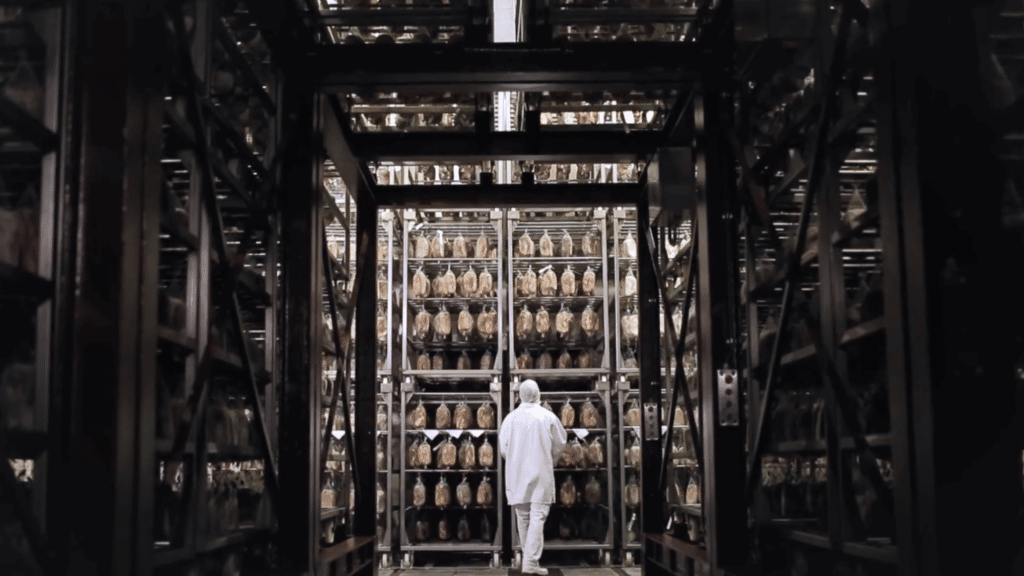Reduction of failure downtime versus the target of 25%


Food and Beverage Transformation: The Need to Move Fast Without Sacrificing Margins
Food and beverage manufacturers face pressure on margins as they move to achieve operational transformation. Practical strategies are needed to manage raw material costs and mitigate supply chain disruptions, while processes must be reshaped to meet sustainability goals. Leaders are balancing investment in operational efficiency against digital capability development, with each decision affecting their competitive positioning.
This challenge spans the value chain. Production teams are optimizing yield while reducing packaging costs. Supply chain managers are redesigning networks for cost efficiency and disruption resilience. Quality assurance teams are addressing growing regulatory requirements without increasing operational overheads. Innovation teams are shortening development cycles to match the speed of the market.
These converging pressures call for integrated operational transformation. Success cannot come from incremental improvements, but from simultaneously advancing process optimization, workforce capability, digital integration, and sustainability performance.


Real Results Achieved with our Clients
Our industry specialists work shoulder-to-shoulder with your teams - on the production floor - to reduce costs, digitize core processes and streamline supply chains. From large-scale dairy operations to independent craft breweries, we deliver measurable improvements that translate into lasting competitive advantage. Sample results:
Reduction in roll-out costs achieved
In Savings achieved in 8 months across 2 sites
A Tailored and Pragmatic Approach that Fits your Reality
With raw material volatility and growing consumer expectations, operational excellence has shifted from advantage to necessity. That's where EFESO comes in – on your production floors, in your supply chain war rooms, beside your innovation teams. Together, we assess your current situation to identify fragmented processes, inefficiencies and underused potential.
We help your teams to adopt practical, hands-on methods to achieve measurable gains in operational productivity, cost efficiency, product quality consistency and speed to market. These aren't one-time wins; they become your new standard.

Making supply chains in the food industry viable.

Ensuring trust in food products through quality.
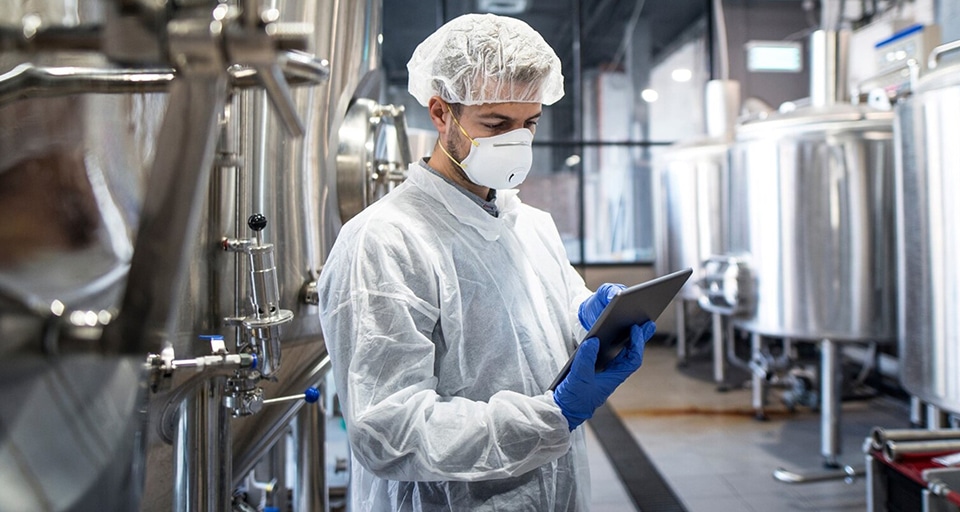
Implementing digital and automated processes in food production.

Achieving sustainable production in the food and beverage industry means avoiding negative ecological and social effects throughout the entire supply and production chain.

Meeting the need to deliver new flavors and product innovations The food and beverage industry has one of the highest paces of innovation – but it is also under the highest pressure to innovate.
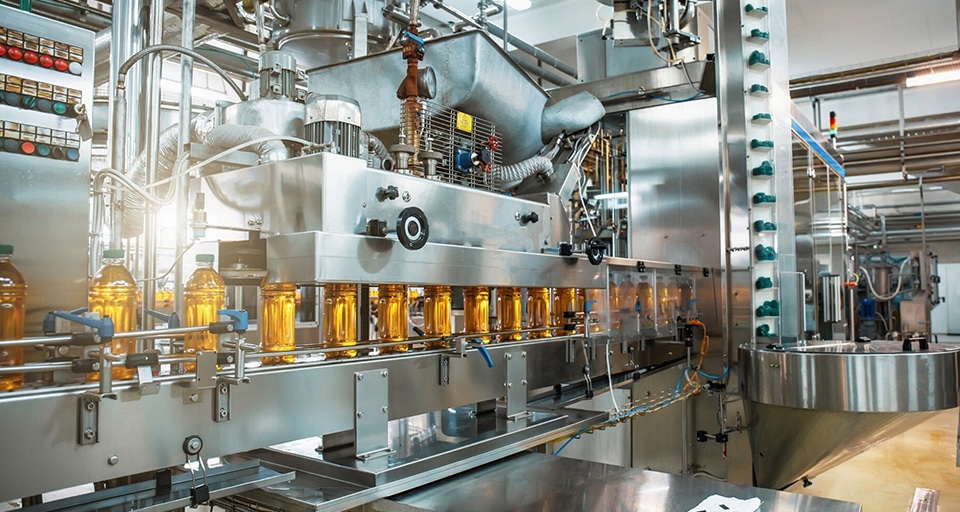
Reducing production costs in the food industry and increasing profitability The food industry is facing declining purchasing power and growing price sensitivity among consumers while managing rising wage costs and unfavorable price trends for raw materials, energy, operating resources and logistics.
Meet our Food and Beverage Leaders
Start the conversation
Building Resilient, Transparent Food and Beverage Supply Chains

Making supply chains in the food industry viable. Supply chains in the food and beverage industry are fragile. Political, environmental and economic upheavals are increasingly causing costly disruptions and jeopardizing the supply of raw materials, energy and critical operating resources to companies.
At the same time, the increasing fragmentation of global networks into local (“glocal”) supply chains leads to highly complex logistics and production management processes. On the one hand, companies are faced with the task of implementing effective solutions to ensure the long-term stability of their international networks. On the other, they must build “vitreous supply chains” to ensure maximum transparency and enable effective and near-real-time control. To achieve both, the use of digital solutions and lean planning methods is particularly important.
Working with your teams, EFESO helps you to:
– Shape a resilient strategy by aligning production and supply networks, selecting the right technologies and defining the capabilities needed to manage risk and drive sustainability.
– Build transparency into planning with digital supply chain towers, real-time simulations, and AI-supported tools that turn data into daily decision-making power.
– Drive operational performance through practical OPEX systems that embed resilience, efficiency and quality into everyday routines.
– Connect the supply chain digitally by developing cross-functional platforms that streamline processes and improve how information flows and decisions are made.
– Track what matters with end-to-end traceability that supports compliance, verifies product origin and monitors emissions and sustainability metrics.
Quality and Customer Trust

Ensuring trust in food products through quality. Quality and customer trust are fundamental in the food and beverage industry: without them no business model stands a chance of success. Customers are taking an increasingly critical look at production conditions in the food and beverage industry and expect a high level of transparency, sustainability and quality throughout the entire life cycle.
EFESO works with your teams to embed quality into every step of the value chain – without compromising efficiency or cost control.
Together, we help you to:
– Design quality into operations by building systems that prevent issues before they arise, standardize processes and empower autonomous quality teams.
– Plan with precision using data-driven tools that connect procurement, inventory and sales planning into a single integrated view.
– Bring customers into the process by creating digital touchpoints that link product development, production and order management.
– Make quality visible through traceability systems that document every step of the journey – from raw material to shelf – while supporting sustainability goals.
Digitalization and Automation

Implementing digital and automated processes in food production. The development and implementation of a consistent and future-oriented digitalization strategy offers an important starting point from which to increase efficiency and flexibility and to counteract staff shortages.
To leverage this potential, the integrated use of digital technologies, modern planning methods, end-to-end data usage and consistent process automation is crucial. The focus can be on the implementation of comprehensive future factory concepts as well as on the digitalization and automation of the existing production system.
EFESO supports your teams in building digital capabilities that are practical, scalable and aligned with your operational goals.
We work with you to:
– Define your future factory by mapping out how automation, IT integration and lean design can come together to create adaptive, sustainable production systems.
– Digitize planning and control using simulations, modeling and lean management tools that turn strategy into action and improve responsiveness.
– Automate where it counts – from manual tasks to data flows – by introducing modular, connected systems that reduce waste and increase efficiency.
– Equip your people with the skills and confidence they need to lead in a digital environment, supported by tailored learning and change management programs.
Sustainable and Resource-Friendly Food and Beverage Production

Achieving sustainable production in the food and beverage industry means avoiding negative ecological and social effects throughout the entire supply and production chain. This includes monitoring regional procurement and production and exercising comprehensive transparency about ingredients as well as ensuring the economical use of resources and energy and the recyclability of packaging.
Taking these factors into account is not just an economic necessity. Sustainability is one of the most important purchasing criteria for consumers, particularly in the food and beverage industry. It is also subject to dynamic and demanding national and international regulations. The development of an integrated sustainability strategy and its implementation in organization, processes, research and supply chain management is therefore a central strategic task.
EFESO’s comprehensive portfolio of solutions ensures that companies in the food and beverage industry can implement ambitious sustainability strategies with confidence:
Strategy: the conception, operationalization and implementation of approaches to reduce the environmental impact of manufacturing and logistics and to increase resource efficiency in production.
Transparency and traceability: recording the CO2 footprint, implementing key performance indicator (KPI) systems and data-supported simulation and optimization approaches. Ensuring the traceability of the origin and manufacturing conditions of products and raw materials throughout the entire value chain.
Resource-efficient production: the development of manufacturing, portioning and packaging systems that increase resource efficiency in production and avoid the waste of raw materials and products.
Circular economy: maximizing efficiency and cost-cutting potential while improving your ecological footprint through re-manufacturing and re-use concepts. Introducing a product development philosophy geared towards the entire product life cycle.
Culture and skills: promoting a sustainability-conscious corporate and work culture and building skills with regard to the potential of the circular economy.
Product Evolution and Innovation in the Food Industry

Meeting the need to deliver new flavors and product innovations The food and beverage industry has one of the highest paces of innovation – but it is also under the highest pressure to innovate. The development of new products and production processes, as well as the continuous improvement of individual product properties, requires significant financial investment and highly qualified personnel.
EFESO ensures that innovation processes are focused, connected and effective:
Innovation strategy: the development of overarching technology and innovation concepts as well as KPIs for innovation evaluation and global capacity planning in research and development.
Accelerated product launch: the implementation of smart and modular production concepts for the accelerated realization, launch and distribution of new products.
Qualification: the design of qualification programs to promote innovation and to establish company-specific “academies” that strengthen innovation skills.
Sustainable innovations: anchoring the design-for-sustainability concept in product development to increase resource productivity and reduce environmental impact throughout the product life cycle.
Cost Reduction and Increased Efficiency in Food and Beverage Production

Reducing production costs in the food industry and increasing profitability. The food industry is facing declining purchasing power and growing price sensitivity among consumers while managing rising wage costs and unfavorable price trends for raw materials, energy, operating resources and logistics.
In stagnating and increasingly fragmented food markets, growth strategies can only address this to a very limited extent. To protect and further increase their margins, companies must systematically examine every area of their value chains and production networks for potential savings. They need to identify cost levers that neither negatively impact their ability to act and innovate nor weaken their market position by compromising on quality and competitive differentiation.
EFESO ensures that cost and efficiency potential in the food and beverage industry is consistently maximized and that resources and capacities are focused on the following growth topics:
Operationalization of strategy: transforming strategic targets into a system of key figures for cost and revenue management. This includes developing and implementing a multi-level management system for the operational management of ongoing processes.
Supply chain: the use of forward-looking, data-supported supply chain management methods to ensure high process efficiency, consistent interface optimization and precise, near-real-time planning.
Productivity increase: optimizing machine and system usage and minimizing costs through the implementation of intelligent production concepts and reducing personnel requirements by automating manual processes. Increasing system effectiveness and availability (OEE) through troubleshooting and predictive maintenance.
Resource efficiency and waste reduction: lowering resource consumption and reducing the waste of raw materials by introducing innovative, digitally supported production and packaging processes.
Leadership and organizational development: empowering employees and managers and introducing digitally supported management instruments such as digital shopfloor management.
Our Services to Support your Transformation
Explore how our actionable, high-impact and tailored service offerings help you succeed


The EFESO Touch
For over 40 years, EFESO has partnered with more than 500 food and beverage companies worldwide to drive meaningful operational change. We combine deep food and beverage expertise with proven methodologies to deliver breakthrough results, working side by side with your teams to transfer capabilities through hands-on implementation.
From shop floor material balance analytics to boardroom strategy, we embed improvements into your organization’s DNA. We understand the realities you face – perishability constraints, regulatory complexities and relentless pressure to safeguard quality while reducing costs. Together, we turn these challenges into sustainable performance gains that strengthen today’s results while securing tomorrow’s competitiveness.
Meet Some of our Food and Beverage Team Members

Ready to Feed Tomorrow's Demands?
- Meet surging demand without margin erosion
- Turn waste into profit, compliance into advantage
- Join F&B leaders achieving 15% EBITDA growth




